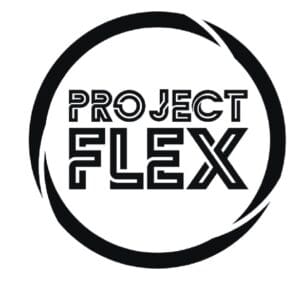Applications are invited for a PhD studentship funded by the Knowledge Economy Skills Scholarship (KESS 2 East) scheme intended to start October 2019. The project will be based in the School of Sport, Health and Outdoor Education at University of Wales Trinity Saint David (Carmarthen Campus) in collaboration with The Football Association of Wales Trust.
Duration: 3 years
Funding Amount: UK/EU tuition fees plus stipend starting at £14,628 p.a. for 2019/20.
Regions: EU (Non UK), UK
Project Details:
Evidence shows that Wales, and the UK more widely, is facing a significant public health issue driven by increased levels of inactivity in children, who it has been predicted may die five years earlier than their parents despite improvements in modern medicine. It has been estimated that the cost of physical inactivity to Wales alone is around £650 million per year, while the overall bill to the NHS is estimated to be £30 billion for the treatment of conditions linked to inactivity, which is one of the leading risk factors for death worldwide. Regular physical activity has many benefits to health, including improved mental health and well-being. People who are physically active have up to a 50% reduced risk of developing the major chronic diseases such as coronary heart disease, stroke, diabetes and some cancers and a 20-30% reduced risk of premature death.
Changes in society have created a ‘perfect storm’ for sedentary behaviours. Modern technology, lack of green space, fear of strangers, a reliance on driving, baby gadgets, coffee shop culture and screen time have all eroded time that would previously have been spent moving. This is most damaging and far reaching in relation to our very young children. Over 30 years of research in motor development shows that we need to develop the foundations of movement in early childhood if we are to be able to access physical activity for the rest of our lives. The relationships between physical activity, motor competence and self-perception are complex, but in essence means that young children need to have access to high quality play and proper instruction to ensure they reach the levels of mastery needed to make healthy life choices. The increasing inactivity of society means babies and young children spend more hours being sedentary and entertained by screens resulting in large numbers of children entering school with very poor motor development, problems with communication and sensory impairments. With the physical domain having the greatest impact on global self-esteem the implications for mental health are also a cause for concern. Of particular note is that children in areas of socio-economic deprivation are most likely to have a developmental delay in their motor skills, putting them at high risk of entering a negative health trajectory. If children are to be able to access a life of physical activity and sport which can support their health and well-being they need quality movement experiences in early childhood.
A key factor in this is children’s physical activity with their families and in the home. Parents and carers of young children need opportunities to learn about the importance of movement for their children’s development as well as strategies to support this. In response many parents take children to sports clubs at young ages where they experience skills related to a particular sport. However overwhelming evidence shows that early specialisation in sport can be detrimental to long term exercise adherence, physical health and mental health. At a young age children need play based developmentally appropriate activities that ensure the development of a broad movement vocabulary to support later physical activity and sport engagement.
To address these concerns a family engagement programme (Footie Families) has been developed by the Wales Institute for Physical Literacy and the FAW-Trust. Drawing on the work of SKIP-Cymru© (Successful Kinaesthetic Instruction for Pre-schoolers in Wales) it uses structured play-based activities for parents and their children facilitated by specifically trained coaches.
The primary research question is:
Does a 10 week programme of ‘Footie Families’ improve pre-school children’s motor development, empower parents and change family physical activity behaviours?
The following work will be undertaken within the proposed project:
Evaluation of the structure and delivery of the programme
Assessment of children’s motor skills
Interviews with parents / carers
Creation of an evidence base for a developmentally appropriate approach for working with pre-school children in the community.
Expected Outputs:
Increased community engagement in physical activity supporting behaviours.
Developing expertise of coaches to support families working with pre-school children in a developmentally appropriate play-based approach.
Research paper publications, conference presentations regionally, nationally and internationally.
Funding: Funded by KESS 2 East. Knowledge Economy Skills Scholarships is a pan-Wales higher level skills initiative led by Bangor University on behalf of the HE sector in Wales. It is part funded by the Welsh Government’s European Social Fund (ESF) convergence programme for West Wales and the Valleys. This studentship consists of full UK/EU tuition fees at UK/EU rate, as well as a tax-free Doctoral Stipend starting at £14,628 p.a. for 2019/20. Each scholarship has an additional budget for travel, equipment/consumables and training to support your research. KESS PhD Scholarship holders do not pay fees.
Length: Full-time for 3 years. (Theses must be submitted 6 months after the funded three-year study period.)
Training: The achievement of a Postgraduate Skills Development Award (PSDA) is compulsory for each KESS scholar (The PSDA is based on a 60-credit award, which is an additional award to the PhD).
Selection Criteria:
Essential:
Hold at least a 2:1 degree in physical education, primary education, motor development or a related sports science or health field.
Hold at least a Masters degree in a relevant field.
Have experience of working with early years children.
Have an interest in early childhood motor development.
Have an interest in physical literacy.
Have an interest in family physical activity engagement programmes.
Have demonstrated excellent written and oral communication skills.
Have a current DBS certificate.
Have initiative, self-motivation, and ability to effectively manage own time and undertake independent research activity.
Excellent inter-personal skills with ability and commitment to work effectively as part of a collaborative team.
Ability to establish strong collaboration with the FAW Trust partner
Be able to drive.
Desirable: Have an interest in / experience in working in Football
Be interested in the role of football to support health promoting behaviours in families and the community
Eligibility: Open only to those within the KESS East Wales Programme Area. Candidates must meet the following criteria:
Have a home/work address in the East Wales Programme Area * at the time of their application.
Have the right to take up paid work in the Programme Area * on completion of the scholarship.
Be classified as ‘home’ or ‘EU’ according to the University’s guidelines.
* East Wales Programme Area includes: Flintshire, Powys, Wrexham, Vale of Glamorgan, Monmouthshire, Newport, and Cardiff
How to apply: A completed application package should be submitted to Dr Matt Briggs m.briggs@uwtsd.ac.uk by 21 June 2019. Applications received after this point will not be considered. Hard copy may be sent to
Dr Matt Briggs
Research, Innovation and Enterprise Services
University of Wales, Trinity Saint David.
J-Shed, Suit 10 / 11.
Kings Road
Swansea
SA1 8PL
Shortlisted candidates will be informed by 27 June 2019. Interviews will be held on 11 July 2019.
Application package: Please download the following documents from the UWTSD website here http://www.uwtsd.ac.uk/rdp/funding-and-projects/kess-ii/
KESS 3 Participant Application Form
UWTSD Postgraduate Research Application Form
Supporting Documents mentioned on each form
To discuss the project please contact: Dr. Nalda Wainwrightc(n.wainwright@uwtsd.ac.uk)
To discuss the application process, please contact Dr. Matt Briggs. (m.briggs@uwtsd.ac.uk)




